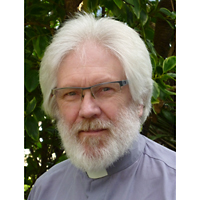“The pastoral dimension of a funeral will enable and reinforce healthy grieving. It will acknowledge where people are in their grief and give them the opportunity to express something of their experience of loss and recognise the true nature of the death. I suspect few people today consider grieving to be pathological, but many regard it with a deep sense of embarrassment and awkwardness. What we need are grievers who can express their grief unapologetically; showing us that grief is not an illness, not a weakness, not self-pity, not simply sadness, not something that we should grin and bear – but a natural, normal response to loss. It is part of being human. John’s statement, ‘Jesus began to weep’ (John 11:35) (or, as in the Revised Standard Version, ‘Jesus wept’), affirms our needs in time of grief. A grieving father wrote: ‘I shall look at the world through tears. Perhaps I shall see things that with dry-eyes I could not see.’ That Jesus openly expressed his grief is not, however, a warrant for turning the funeral into a liturgical counselling session but an expression of the compassion of God who is present with us, sharing our pain and acquainted with our grief.”
From Chapter 2 — Universal Dimensions, of Earthed in Hope: Dying, Death and Funerals – A Pakeha Anglican Perspective. By Alister G. Hendery.

